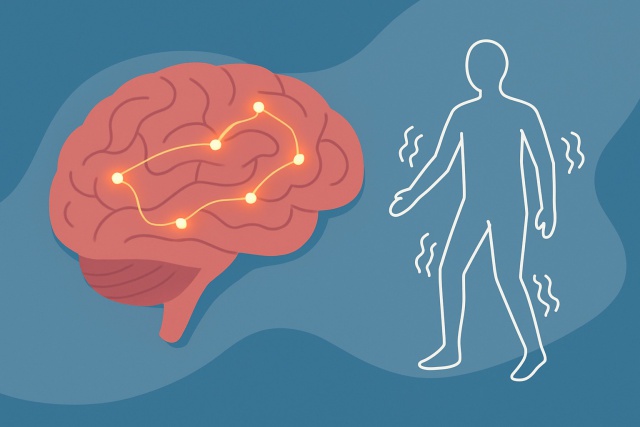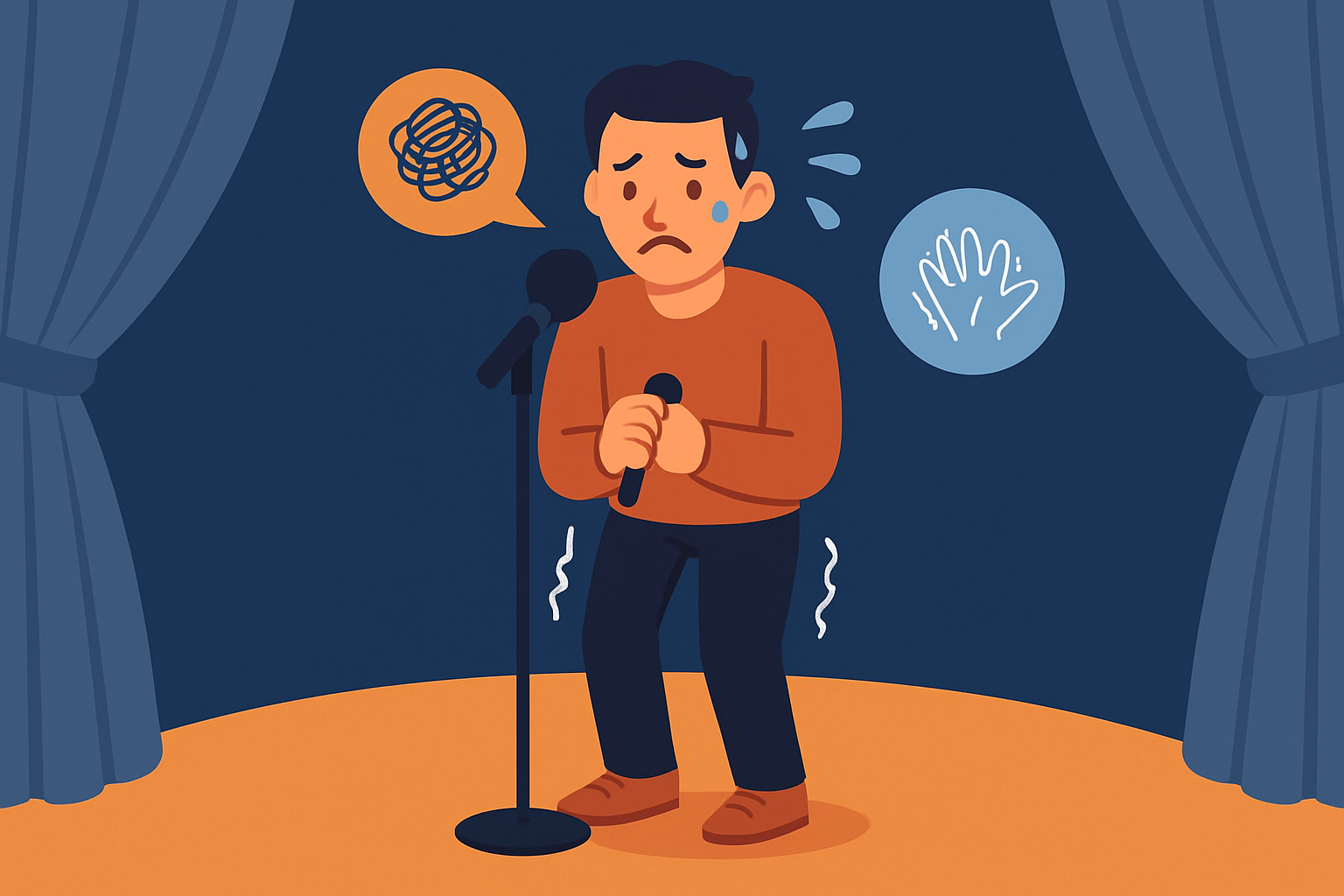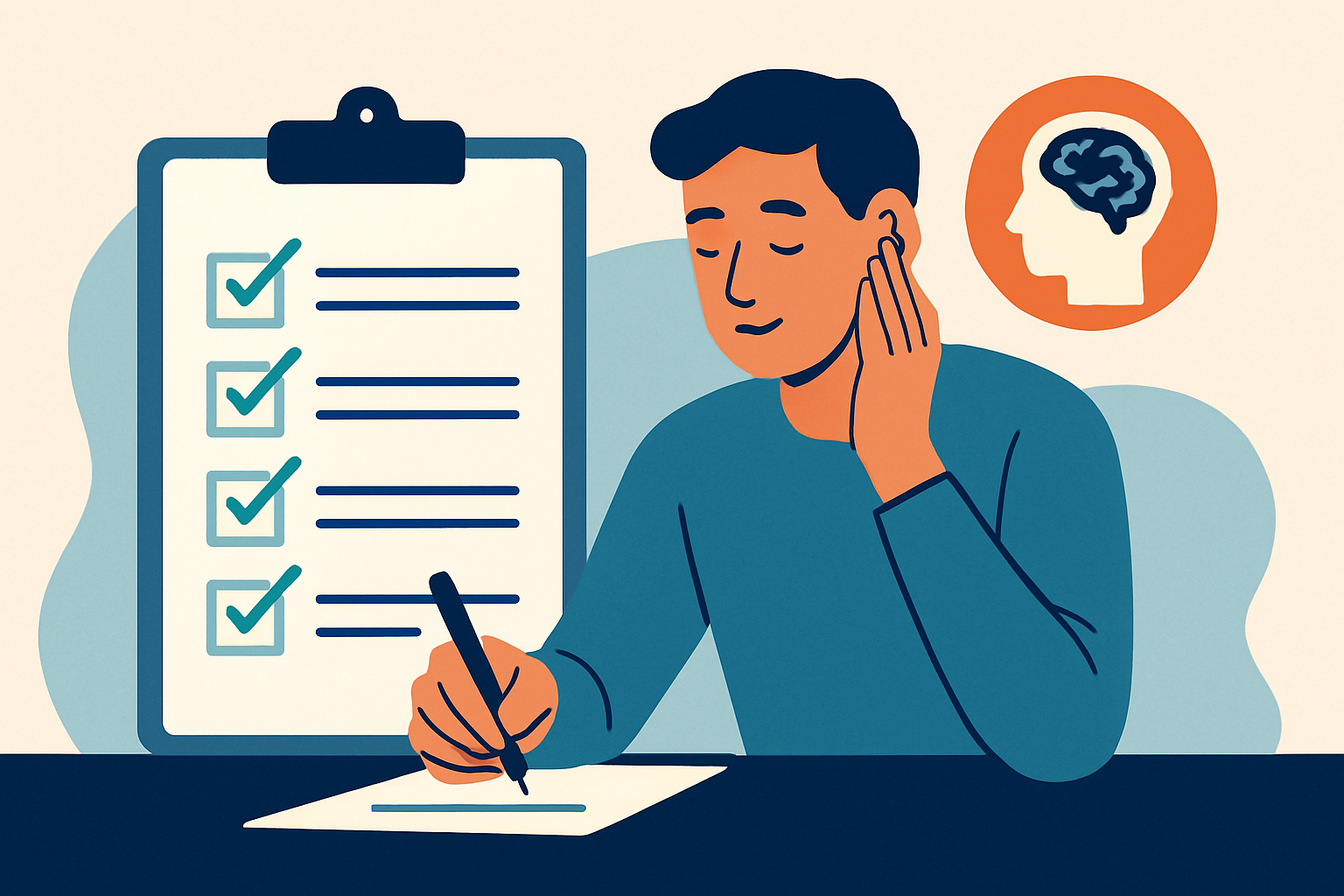
Understanding Functional Movement Disorder - Symptoms and Causes
Functional Movement Disorder causes involuntary abnormal movements without brain damage. Learn its s...
This article dives into what performance anxiety is, how it impacts you, and shares practical steps to improve your mental health and come out on top.
The anxiety of performance sneaks up on individuals from all walks of life—whether you are a public speaker facing a crowd, an athlete gearing up for the big game, or an artist about to share your latest masterpiece. Catching those early warning signs can really make a difference by helping to protect your mental well-being and keep your performance steady.
Performance anxiety, often called stage anxiety, is the pesky feeling that sneaks up when someone is about to perform a task with eyes watching or judgments looming. It’s not quite the same as general anxiety disorders because it typically flares up in specific moments linked to performing. Common culprits include the fear of being judged, a history of rough experiences and nail-biting high-pressure situations.
Performance anxiety tends to sneak up in all sorts of ways—physically, emotionally, mentally and behaviorally. On the physical front, you might notice sweating, shaking hands or a heart that seems to be sprinting a marathon. Emotionally it can feel like a heavy cloud of dread, intense fear or just being completely overwhelmed. Mentally it’s like your focus gets hijacked by a parade of negative thoughts and those dreaded worst-case scenarios. Behaviorally some individuals start dodging opportunities, procrastinating like their life depends on it or rehearsing the same scene over and over until they’re blue in the face.
| Symptom Category | Examples | Description |
|---|---|---|
| Physical | Sweating, trembling, rapid heartbeat | Those unmistakable physical signs of anxiety that throw normal bodily control out of whack |
| Emotional | Fear, dread, overwhelm | Intense emotions that tend to rattle your confidence and dial up the distress |
| Cognitive | Negative self-talk, concentration issues | Pesky thoughts that hijack your focus and often make anxiety seem even worse |
| Behavioral | Avoidance, procrastination | Habits that might feel like a safe retreat but often end up slowing down progress |
Physical signs of performance anxiety often show up as sweating more than usual and a heartbeat that races like it’s trying to win a sprint. You may also experience tense muscles, shaky hands, a dry mouth that feels like you’ve just run a marathon without the fun part, and sometimes an unhappy stomach. These reactions are all thanks to the body’s classic fight-or-flight response.
Emotional symptoms often come wrapped in strong feelings of fear and dread alongside that nagging sense of not quite measuring up. This can spiral quickly into full-blown panic. On the cognitive side, those pesky negative thoughts like "I will fail" or "Everyone is judging me" make anxiety worse. They cloud your mind and mess with your concentration, causing frustrating memory slips.
When it comes to behavior, performance anxiety often sneaks in by making individuals dodge important events or procrastinate to the point of no return. They may also dive headfirst into over-preparing until burnout sets in. People might lean on safety nets like rehearsing repeatedly or clutching their notes as a security blanket to fend off the fear of failure.

Dr. Emily Harrow a clinical psychologist who focuses on anxiety disorders highlights that catching the early warning signs of performance anxiety can really make a difference. It helps keep someone performing at their best from the start and acts as a mental safety net.
Untreated performance anxiety sneaks into all corners of life and causes hiccups like missed promotions or poor evaluations at work. It also puts strain on relationships, leading to withdrawal or irritability that no one enjoys. On top of that, it gnaws at your self-esteem and leaves you feeling less sure of yourself. If left unchecked, this anxiety often snowballs into bigger mental health issues like chronic anxiety or depression, which can seriously drag down your quality of life and well-being.
Performance anxiety often sneaks up due to a mix of factors like a genetic knack for anxiety and rough patches from past performances that didn’t go as planned. It’s also linked to personality quirks such as a streak of perfectionism.
Managing performance anxiety usually calls for a blend of solid prep work, mental gymnastics and reaching out for professional help when things get too tangled. It often boils down to practicing until your fingers almost know the routine by heart, leaning on mindfulness to calm the storm upstairs, rewiring those pesky negative thoughts and gradually getting comfortable in the hot seat. Breathing exercises can work wonders to ease the physical jitters.
Sometimes, life throws curveballs that are tough to handle alone, and that’s where professional support and therapy truly shine. It’s not just about talking through problems; it’s about having a trusted guide who helps you make sense of the mess, find your footing, and build resilience. I’ve found that therapy isn’t a magic fix, but more like a steady compass in the storm. Whether you’re dealing with everyday stress or something deeper, reaching out for professional help can be the vital first step toward feeling more like yourself again—because sometimes, even the strongest among us need a little backup.
Professional therapy, especially cognitive-behavioral therapy (CBT), often works like a charm to tackle performance anxiety by focusing on tricky thought patterns and behaviors. Counseling offers a much-needed emotional lifeline. In tougher situations, medication might come into play.
Managing the anxiety of performance over the long haul usually means carving out time for regular self-care and paying close attention to your mental health. It also involves gradually building up resilience.

Normal nervousness usually fades once you get going like butterflies settling down when the music starts. Performance anxiety tends to stick around and often makes things worse. It can cause sweaty palms, trembling and a flood of negative thoughts that throw you off your game. If the fear of being judged or messing up keeps disrupting your performance regularly you’re likely dealing with performance anxiety.
Sometimes mild anxiety eases if you put in a bit of effort like practicing more or trying some simple breathing exercises. But if it sticks around like an unwelcome guest it usually won’t disappear without a little help. Therapies such as CBT can give you tools to break free from avoidance and negative thinking especially if symptoms start interfering with your daily life or goals.
Breathing techniques like the 4-7-8 method—breathe in for 4 seconds, hold for 7 and breathe out for 8—work wonders to slow your heart rate and ease tension fast. Another helpful trick is grounding yourself by noticing how your feet feel against the floor. This shifts your focus away from spiraling panic and brings you back to the present moment.
The basics—mindfulness and thorough preparation—work well no matter what you do. Athletes often use visualization by picturing success in vivid detail. Musicians break rehearsals into manageable chunks to avoid overwhelm and presenters remind themselves that the audience is rooting for them, not waiting to catch mistakes. Adjusting strategies to match the unique demands of your field usually works best.
It varies by individual but cognitive behavioral therapy often shows noticeable progress within 8 to 12 sessions. Staying committed and practicing exercises like exposure outside of sessions can speed up progress. For more intense cases, longer treatment or medication alongside therapy might be necessary to manage symptoms effectively.
Not always but perfectionism can definitely increase pressure by setting the bar too high. The fear of making mistakes feeds anxiety a lot. Finding a balance between aiming high and being kind to yourself—embracing a 'good enough is okay' mindset—and focusing on steady progress instead of flawless results can relieve much of that pressure.

Functional Movement Disorder causes involuntary abnormal movements without brain damage. Learn its s...

Spotting the signs of a toxic relationship early can save your emotional health. Discover key red fl...

Contempt is a toxic emotion that can erode love and respect in relationships. Discover what contempt...

Discover how TF-CBT anchoring techniques help individuals manage trauma by connecting distressing mo...